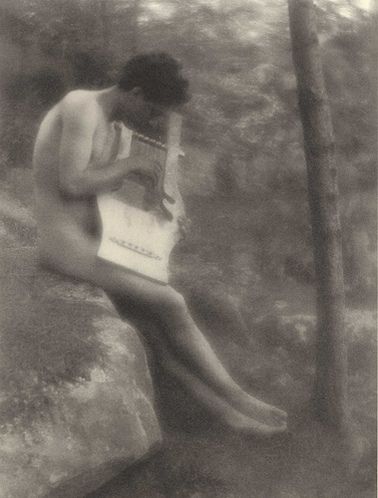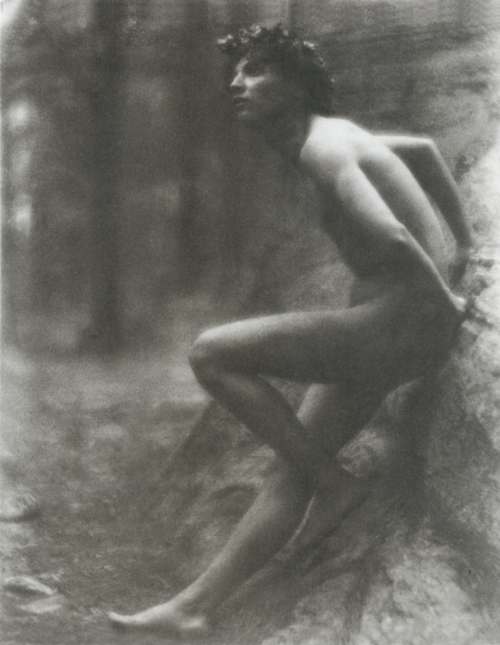“…His first touch of the earth went nigh to kill.
«Alas!» said he, «were I but always borne
Through dangerous winds, had but my footsteps worn
A path in hell, for ever would I bless
Horrors which nourish an uneasiness
For my own sullen conquering: to him
Who lives beyond earth’s boundary, grief is dim,
Sorrow is but a shadow: now I see
The grass; I feel the solid ground – Ah, me!
It is thy voice – divinest! Where? – who? who
Left thee so quiet on this bed of dew?
Behold upon this happy earth we are;
Let us ay love each other; let us fare
On forest-fruits, and never, never go
Among the abodes of mortals here below,
Or be by phantoms duped. O destiny!
Into a labyrinth now my soul would fly,
But with thy beauty will I deaden it.
Where didst thou melt too? By thee will I sit
For ever: let our fate stop here – a kid
I on this spot will offer: Pan will bid
Us live in peace, in love and peace among
His forest wildernesses. I have clung
To nothing, lov’d a nothing, nothing seen
Or felt but a great dream! O I have been
Presumptuous against love, against the sky,
Against all elements, against the tie
Of mortals each to each, against the blooms
Of flowers, rush of rivers, and the tombs
Of heroes gone! Against his proper glory
Has my own soul conspired: so my story
Will I to children utter, and repent.
There never liv’d a mortal man, who bent
His appetite beyond his natural sphere,
But starv’d and died…”
John Keats
Endymion (Book IV)
Excerpt

















